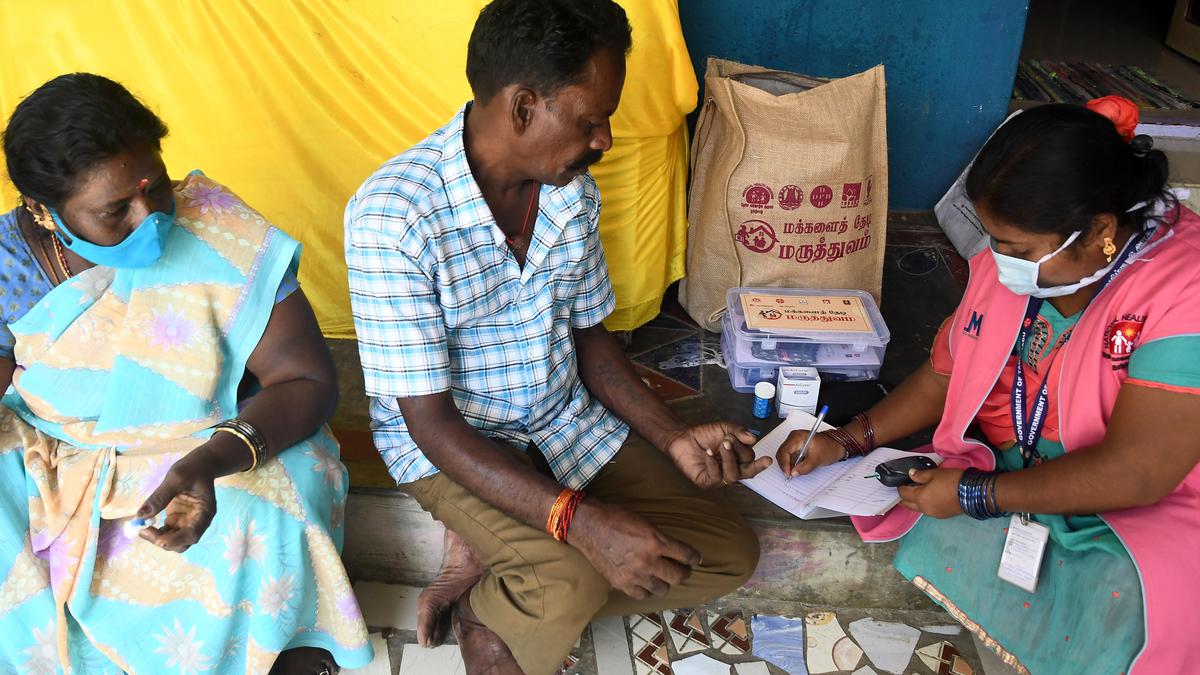
World Diabetes Day | Know your risk; know your response Premium
The Hindu
On World Diabetes Day, Dr. Usha Sriram explains the existing and emerging risk factors to diabetes in India, including genetics, ethnicity, obesity and social determinants of health.
Vanathi, a 39-year-old single mom, who works as a maid in three homes has been diagnosed with diabetes. Her parents do not have diabetes and she is not overweight. She did however have a very traumatic relationship with her abusive husband who died of alcohol-related complications a year ago. As the only earning member of the family and two high school-going children, she finds managing her diabetes a real challenge. Her inability to afford healthy foods, medications, and self-monitoring supplies, and the added stigma of diabetes have caused her considerable distress.
(For top health news of the day, subscribe to our newsletter Health Matters)
Why did Vanathi develop diabetes and what could she have done about it?
Each year, November 14 is marked as World Diabetes Day. The International Diabetes Federation selects a theme for the year and there are worldwide awareness and advocacy efforts around the theme. This is not only necessary but critically vital to help contain the rapid rise in the prevalence of diabetes and its complications.
There are currently 540 million persons living with diabetes globally and the vast majority live in middle- and low-income countries. Diabetes has long been thought of as a problem of the old, and the affluent but the ground reality is entirely different. In many metros in India, the poor have more diabetes than the rich. The urban-rural divide is blurring. If genetics and ethnicity are the only major risk factors, why are the numbers of persons with diabetes multiplying at such an alarming rate in such a short time? The reasons are many. Keeping with the theme of WDD 2023, I have listed the existing and emerging risk factors [There are likely many yet-to-be-discovered risk factors].
A family history of diabetes (grandparents, parents, siblings) increases significantly the risk for type 2 diabetes. This is what we call a non-modifiable risk factor.
Response: every effort must be made to have family members of persons with diabetes screened periodically and begin proactive efforts to prevent or postpone the development of diabetes.













